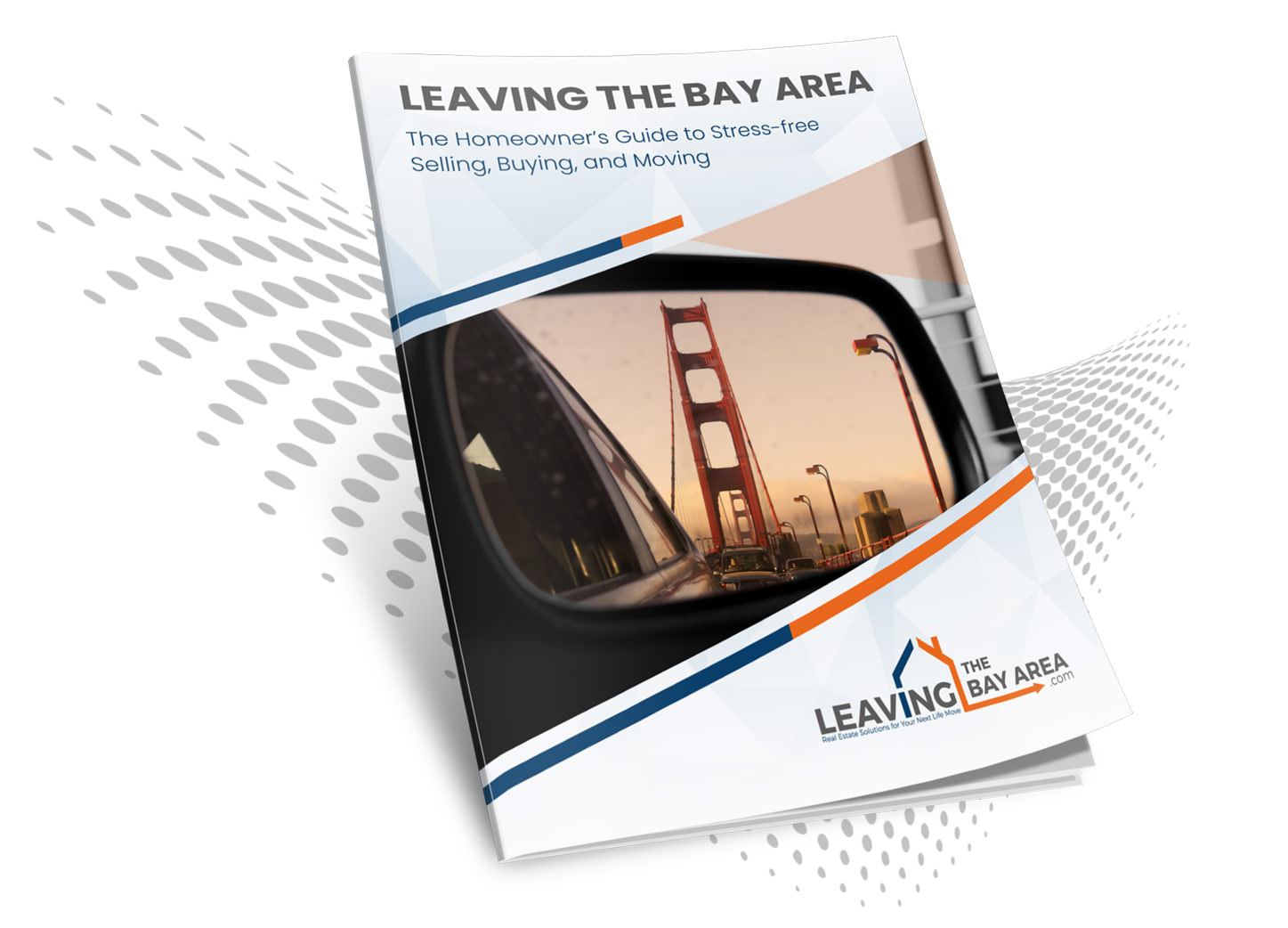Overall, Boise, Idaho is 66.2% cheaper than San Francisco, CA
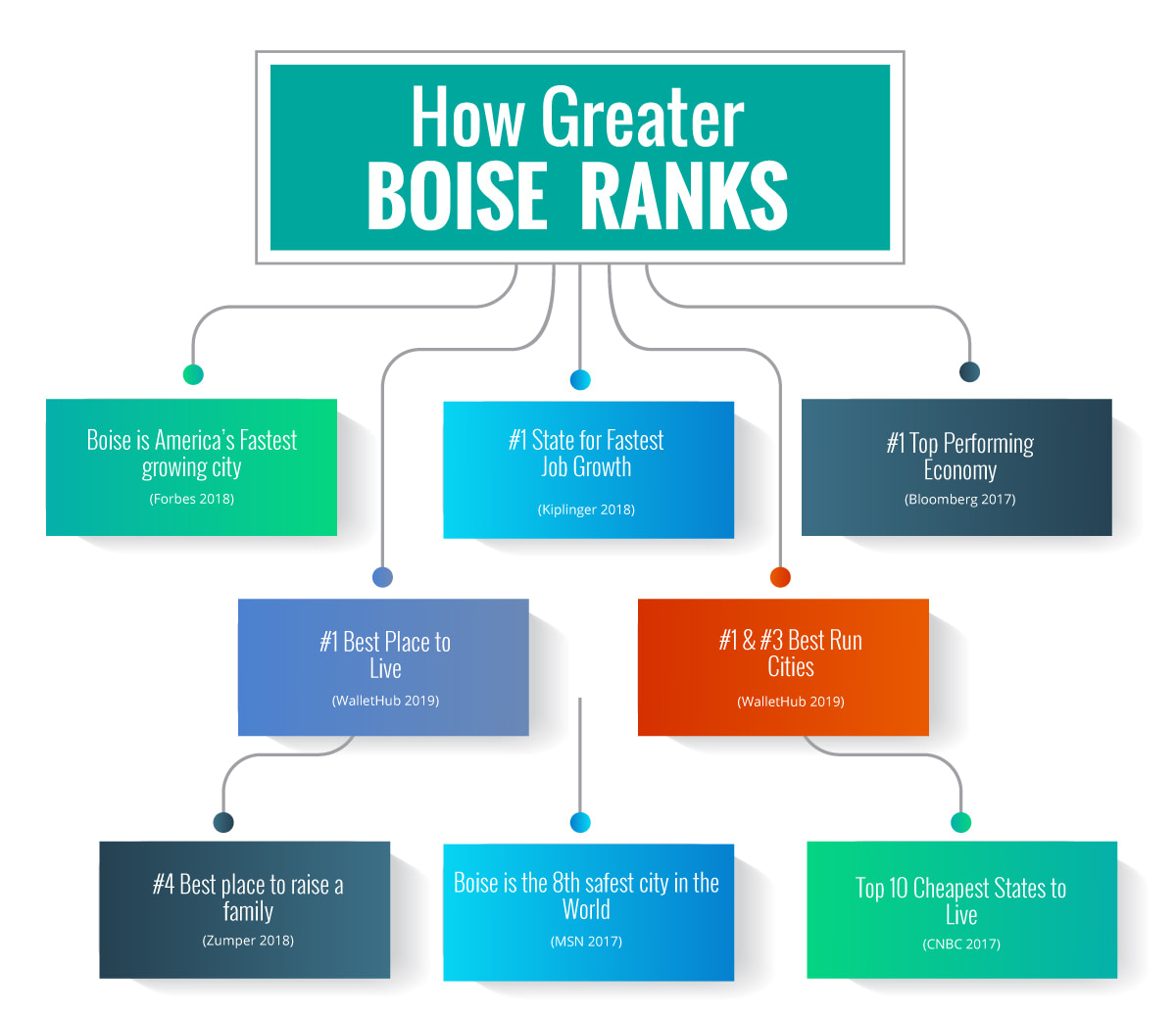
Quick Links
 Your Money Goes Farther in Boise
Your Money Goes Farther in Boise
 Boise Webinar
Boise Webinar
 Cost of Living Comparisons
Cost of Living Comparisons
 Commute Comparison
Commute Comparison
 Live Traffic Comparison
Live Traffic Comparison
 Climate
Climate
 Boise Area Tour
Boise Area Tour
Your Money Goes Farther in Boise
Boise, ID
VS
San Francisco, CA
$496,900 Boise, ID
66.2% less
Median Home Cost
$1,471,200 San Francisco, CA
$3,627Boise, ID
61% less
Property Taxes(annual based on avg price home)

$9,415 San Francisco, CA
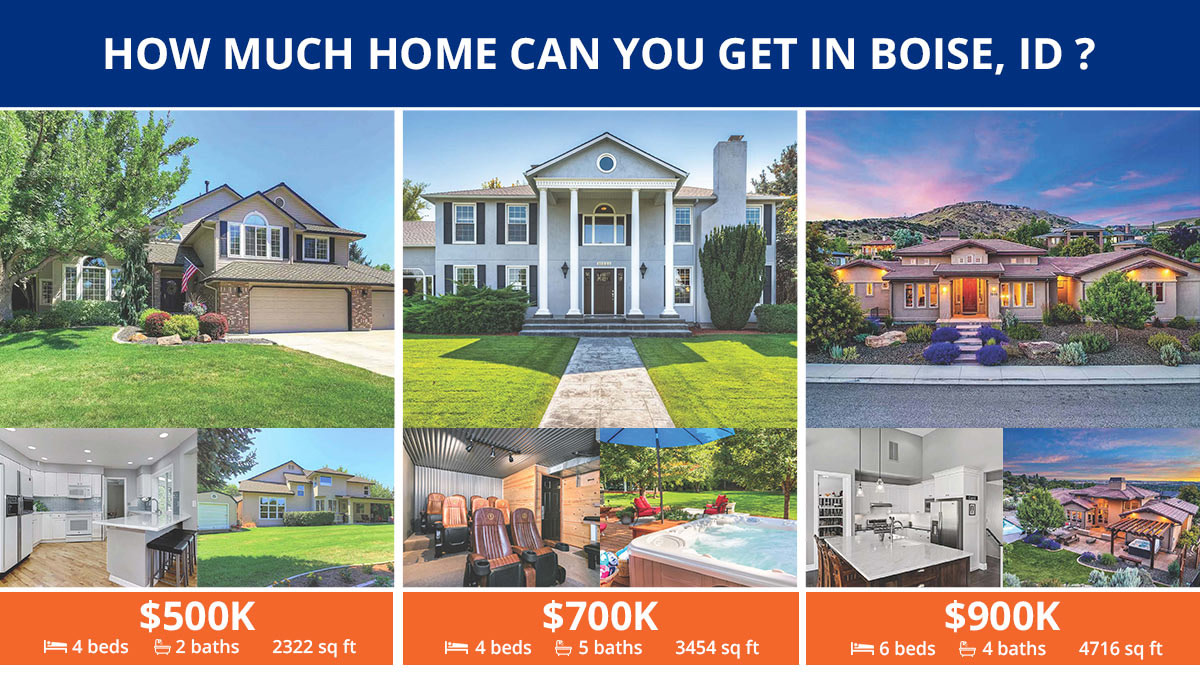
Boise, ID Webinar
Everything you need to know about Boise real estate
FULL TEXT TRANSCRIPTION:
- Okay, it looks like we are good to go. We are live. Matt Stevens, welcome. How are you?
- Great, Scott. How are you doin'?
- Good! I wanna welcome everybody to this edition of the Market Insider Series. My name is Scott Fuller with leavingthebayarea.com, and as you know, if you haven't joined us on one of these webinars before, every week, we travel the country going to a different location where we see a lot of Bay Area residents move to. And the goal of this is to provide as much information as we can to give a high-level overview of the cities. Today, of course, is gonna be Boise, Idaho and some of the surrounding areas. We're gonna go deep. We're gonna talk about housing, we're gonna talk about employment, industry, recreation, climate, a little bit of everything. And so, I wanna welcome my guest today, Matt Stevens with Capital Group. Matt, welcome.
- Thank you again so much, Scott. I appreciate you havin' me here. This is fun, lookin' forward to it.
- Yeah, this is gonna be awesome. I'm lookin' forward to it. So for the folks who are on the live webinar right now, we will have this recorded, but if you're on live, we'd love to have some interactivity here. So if you have any questions that you're just burning to ask and you really need to know, we'll be happy to answer those live. So there's a chat box that you can type your question into. You can also raise your hand and ask a question. There's a Q and A question, also. So feel free to keep this interactive, ask us any of those questions that you'd really love to hear about. We're gonna give some great information. So Matt, again, thanks for bein' with us today. I'm excited for today's webinar because we are seeing a lot of people with a lot of interest in moving to Boise, and I would say, for all of the areas that we're covering, that we service, that we're providing education on these webinars for, Boise's probably the top, or maybe tied with Phoenix for the areas we're seeing people have the most interest in. And obviously, you're gonna give us a lot more, you know, we'll go in depth as to why that might be and what you're seeing on your end as far as people moving into the area. But why don't we start, and give us like, maybe, you know, a quick background of who you are and what you do out there in Boise.
- Yeah, absolutely. And yes, for the record, we're seein' the same thing. Quite a bit of people movin' out here from all over the country, but the lion's share is certainly coming from California. Sacramento, the Bay Area, and Southern California seem to be the three most popular areas. With most of it coming from the Bay, interestingly. Which, to give you a little background on me, I'm actually from the Bay Area myself. I think we talked about that a little bit before, Scott. But I was born and raised in San Jose, and loved my time growing up in the early and late '80s. Had a great time there, moved to southern California for school. And about in 2005, married my wife, ended up comin' up to Idaho after our honeymoon for my brother's wedding, and kinda fell in love with the place and moved up here two weeks later. So we've been up here since 2005, and been lovin' every minute of it.
- No lookin' back, huh?
- No.
- It's a really, it's really a wonderful state. And you know, I was young when we moved up here, and I don't think I realized how lucky I was to make the decision when I did. But I'm really glad I did, 'cause it's a wonderful place to be.
- Yeah, sometimes you take that leap of faith, right? You're not quite sure how it's gonna work out, but it feels right. And you look back and you're sayin' that was a great move for us. And I think for a lot of people who are maybe on this live webinar or who are considering making a move out of the Bay Area, it is a leap of faith, right? It's like, so where do you start? And I think where we're starting today just doing a high-level overview of the area, enables us to determine is this a viable option? That's what we're really tryin' to get to, and maybe get some more information on making a move or maybe even investing in real estate there.
- Absolutely.
- So Matt, let's dive in. I think that the thing that we love that people seem to really enjoy hearing the most about is what can you buy for what amount of money there. So obviously, there's gonna be, you know, I would say that there's people here who are, you know, retiring, maybe they're close to retirement age. They've built up considerable amount of equity in their property, and they're thinking, we want a slower pace of life, Boise might fit that bill for us. What can we buy for a specific price point, right? You might even have people who are renting here because they got into the market later, they weren't able to get into the market, and so they're looking at their options for a lower cost of living, and that could be working individuals, perhaps a working family, right? I'm sure you're seeing both of those types of demographics, right?
- Yeah, yeah, we certainly are. So you hit the nail on the head. The two groups that we see moving out here from California are the retirees and the young families. The retirees are taking advantage of a pretty hot market out there in California and coming in, essentially, most of the time all cash or a large down payment on a house out here, really reducing their leverage and monthly liabilities, allowing them to retire a little bit more in style. And then, the other group we see is, like you mentioned, those who maybe got in or didn't get in at all to the real estate market, now they're priced out of being able to buy a home in California. So we see them coming in. And kinda like me, when I first moved up here, you know, being able to purchase wasn't really a reality in California, and one of the reasons I decided to move up here was I could see a clear path to making that happen. So we see both of those groups moving out here. And they seem to be attracted to different cities, and I've got three cities I'd like to highlight. Because they're the three cities I see most often come up in our buyer searches from California.
- That's great, let's dive in. Love to hear more about that.
- So why don't we do this? We'll start with a map view. I'm gonna go ahead and share my screen here.
- Sure.
- Why don't we start with a map view? I kinda wanna give you the lay of the land first, and then we'll dive into two or three listings in each city just to give you a sample of what that looks like. So let's start with the capital of the state and the biggest city in the Treasure Valley, and that's Boise. And just to give you some jargon here, the Treasure Valley is what we consider this whole area that's on my screen right now. So you have four main cities, Boise, Meridian, Nampa, and Caldwell, with a few smaller cities like Eagle and Star and Kuna down here. But this whole area's considered Treasure Valley. So if you hear that thrown out, that's what they're talkin' about. The three that we're gonna talk about today are Boise, and this is where our downtown is, or the biggest metro area. Meridian, which is more of your community, suburban-type neighborhoods, and then Eagle, which is also suburban but the price points start to increase a little bit there. I'll kinda tell you where people seem to be gravitating in each area.
- Great.
- So let's go ahead and start with, let's see, I think we have Boise here. Just so you know, as of last month our average price point for a home in Boise was $330000. So I pulled up, I tried to bracket properties right around the average price point in Boise. I've got three of 'em here for ya. Hopefully you can see this all right. But the first one here is--
- Yeah, yeah, sounds great.
- Yeah, first one's on Snowbird. So typically, what I like to do is just go through a couple pictures just to give you an idea of finishes and what you might be looking at, but this is more of a patio home, which we will see from time to time here in town. But you can see, you know, it's relatively new or brand-new, so if, if it's not brand-new, this is probably within five years of being constructed.
- Some beautiful finishes in that kitchen.
- Yeah, isn't it nice.
- Yeah.
- It's really nice. So just real quickly, to touch on a couple highlights, this property is going for $335. It did sell, but it just sold recently, so I wanted to, wanna give you an idea. It was 2002 square feet, 2.5 baths, and three bedrooms. And the age was one to five years old. So yeah, this one was built in 2014.
- And so, for a property like this, Matt, how far out would this be from, let's say, downtown Boise.
- Great question. I've got a little link right here for a map view, so let's go ahead and pull it up. So I'm gonna zoom out. You see where it's located there. This is considered southeast Boise, so downtown is right here, this is downtown Boise that we were looking at on the other map. So this property is located in, yeah, this part of town, which is called southeast. I'd guess it's about 15 minutes downtown. And if you're interested, it's probably five to 10 minutes from the airport, which is right here. Next one we have, here's another property. Let's see here. This one's on Montebello. Let's go ahead and start with a map view just so you get a sense where this is. So this property, we were just over here, now we're in south Boise. The airport, again, is right here. So just on the other side of the airport. Also a newer home. Let's run through some of the photos here. This one was listed for $320000, and it did get bid up to $330000. It closed at $330.
- So these properties that we're looking at in Boise, how long would you expect, for this specific price range, how long would you expect for these homes to stay on the market, how many days?
- If it's priced well, as little as three days. If it's, you know, at market or slightly over, it could be as much as two, three weeks.
- So this--
- So pretty quick.
- Yeah, pretty darn quick. Let's see, so this one is a 2300 square foot, four bedroom, 2.5 bath. So yeah, this one is 11 to 20 years old, so slightly older but still pretty darn new. And then another typical home, we'll go ahead and move to this one on Farm View. All right, this is an interesting, an interesting property because it's in an interesting subdivision. So this, a pretty cool subdivision, actually. We have a couple planned communities here in the valley, and so if you recall, again, you know, here's downtown, we were lookin' at a property there, there, and this one is up here in an area that we call Hidden Springs. So this is a master-planned community. It's really cool. Pretty close to downtown, but it's its own community. And again, we see a lot of people from California moving to Hidden Springs, as well. So you can see, this one's, again, relatively new. I'd say within the last 10 years. Pretty well constructed.
- And what percentage of the homes that are selling are new construction versus resale. 'Cause I think in a lot of the areas that we talk about that we're visiting, we're seeing kinda the sprawl to the outlying areas, there's a lot of new home communities that are being built. Are you seeing a lot of that, or is it more resale?
- It's still more resale, but not by much. New construction has been gaining, I wouldn't say necessarily gaining, we just have a little more inventory on the resale side that the new construction is picking up a good share of the sales. Lot of that is pre-sales, though, where they are, they're not necessarily spec homes. There are certainly spec homes being sold right now, but a lot of 'em is through pre-sale.
- Got it, okay.
- And this one is a three bedroom, two bath, 1800 square foot home. This one was listed for $3249 and sold for $325. And again, that was pretty recent. So that's a little sampling of a few homes in Boise. Does that give you a--
- Yeah, yeah, that's perfect.
- Good idea what we're lookin' at? Awesome. All right, so the next area I wanna share with ya is Meridian. And just to go back to the map again, we were just exploring the Boise area here. We're gonna step next door to the bedroom community or the subdivision community Meridian. This is where a lot of the growth is happening. In fact, Meridian, I think, is tied for the fourth fastest-growing city in the country right now. So three properties, you know, average price point for Meridian is $337, so we tried to pick a couple that's right around the average for this city. This one here on White Sands is, is a sold property. It did come down $5000, but ended up closing, essentially, at $340000. Lemme show you where this is in Meridian, too. Lemme back this up a tiny bit. So again, here's downtown Boise. Here's Meridian. So it's pretty much in the heart of Meridian. Now let's just pick on a couple of pictures here, give you an idea. Scott, lemme know if you want me to go a little slower here, too.
- Nah, I think we're good, we're at a good pace.
- All right. Kitchens and baths seem to be the most popular pictures to slow down on, so just give you an idea of what this one looks like. All right, so here. This one is a four bedroom, 2.5 bath. It was on the market for 12 days before being, before getting into contract.
- And how many square, uh, 2116 square feet, okay.
- You got it. And this is, this is built in 2005.
- It's amazing what you can get for the money.
- Yeah, right?
- I mean, I'm lookin' at these and I'm comparing, okay, what would that cost in the Bay Area? And it would be, I mean, you could probably add an extra digit to that in some cases.
- Well if, yeah. We actually, we were out there, and you know, we were out there presenting to some residents out there in the Bay last month, and we did stack two side-by-side. It was pretty incredible the difference.
- It's eye-opening, that's for sure.
- All right. So I'm gonna zip through these next few here pretty quick. So here's another property in Meridian. To give you an idea of where this one's at, zoom out a tiny bit. Again, here's Meridian, so we're just south of the freeway here in Meridian in this property on Henry's Fork. So this one sold for $300, essentially $340000. Give you an idea of the floor plan. Lots of parks throughout the city, really. The city is really strong with parks. And Meridian's done a good job of adding a lot of parks to their community, as well. So on some of the listings, you'll see parks featured in them as well. So this is a three bedroom, two bath, and it sold 90 days on market. Took 90 days on this one. So this one was probably priced right above market, and market eventually caught up to it
- Mhm. It looks like that was a new home, right? 2019.
- Mhm. Yes, yeah. This was a new home. Yeah, so there's another good point. Sometimes depending on when the builders list it, this is a spec home, for example. So when they, sometimes they list it during construction so you'll see price, or days on market a little longer than normal. And that's probably what happened here. This one's 1848 square feet. Did you wanna touch on one more here in Meridian, Scott?
- Uh, let's maybe, I got a quick question for ya. So somebody asked, what makes Meridian the fourth largest growing city in the US? What's the appeal, the appeal, do you think, to make that happen?
- I think it's, I think it's inventory right now. Well, I'm speaking specifically of our valley. Meridian is very centrally located, and it's where most of the new construction is happening. And, our inventory might be tight in other parts of the city that are already established and developed. Meridian's really expanding. It's expanding its base right now, so it's growing pretty substantially through new construction.
- So it sounds like there's a lot more opportunities, like if somebody's coming in to the Boise area, there's a lot more opportunities in Meridian being created and available for people than maybe from some of the other outlying areas?
- That's correct, absolutely. Yeah, and I can get into, if we have time, people will choose Boise, typically, to be a little closer to downtown, but they're going to be, they're gonna have a little less inventory to choose from and the homes are gonna be a little bit older, unless they find a pocket of new construction. Meridian, you're gonna be a little farther from downtown, but you'll, most of the time, have a newer home to choose from.
- What's gonna be an average commute, Matt, from let's say, Meridian to Boise downtown where the work centers are?
- If we're, so, it is interesting, here, lemme pull up the map while I chat about this. So it is interesting to talk about traffic, 'cause our traffic is laughable compared to your traffic. But where we do see traffic are the commuters working their way into downtown Boise in the morning and then leaving downtown Boise in the evening or afternoon. Typical commute times, depending on how close you are to the freeway, you know, this, from this area of Meridian to downtown Boise would typically be 10, 15 minutes tops. It could be double that if you're in traffic.
- Okay, so rush hour might be 20, 30 minutes.
- Right.
- Okay.
- Yeah, and then one other thing to consider is a lot of the development is happening out here in Meridian right now, kind of in the northwest corner. And that does make it a little more challenging because this highway is not as quick to get into town and you're a little farther away from the freeway. So you could add about five or 10 minutes if you find yourself in this area.
- Got it. But still reasonable compared to the, you know, two, three hours that a lot of people are experiencing in the Bay Area right now.
- For sure, yeah. We like to complain about our 20, 30 minute commute.
- Right, it's all relative, yeah.
- Absolutely.
- Okay. Matt, what other area did you wanna cover?
- Eagle's probably the last area I think would be worth mentioning here. So, whereas Boise we see kind of a mix of those two groups we were discussing earlier, Meridian, we usually see younger families moving into, and here in Eagle, which is where we're going next, typically that's where we see a lot of the retirees moving to. You get a little more land, a little more house, price points are a little higher, though. As of last month, the average price point in Eagle was $508000.
- So that's kind of the stand-out community of Boise, is that fair to say?
- It's kinda--
- So kind the Beverly Hills, I guess, of Treasure Valley.
- Yeah, its' a little more of the premier community, for sure. Now, you do have pockets in Boise that will match up to this as far as price points go. But you're usually in older homes. And a lot of the retirees we work with, just, they prefer a little more space and a little less maintenance. And so, that's I think why they gravitate towards Eagle. But here's one that sold for $510000. And just to give you an idea of where this is on the map. Here, again, is downtown Boise. We were just looking at Meridian next door to it. And Eagle is just to the north of, of Meridian.
- Okay. And so, we've got a sizably larger house, right? Now we're up to five bedroom, 4.5 bath.
- Mhm. Yeah, typically the homes are a little bigger and the land is a little bigger here. This was on the market, yeah, five, 4.5 bath, 31 days on market.
- And Matt, do those homes that are the higher price point, are they typically gonna stay on the market? 'Cause I noticed we like the green arrow that says, you know, $9000, right, 'cause it's been reduced. Is that more common that you're going to see longer times on the market and potentially the price reductions in those higher-end areas?
- Yeah, I actually have a really interesting chart here that I can, we can jump into. But it essentially show you where the market favors sellers and where they favor buyers, and at what price point. But I'll, I can just touch on each area and suggest that, you know, these average, these properties that I'm showing you right now, if they are above the average price point of, let's say, $508000 in Eagle, they may take just a little bit longer to sell. If they're at or below that, they're gonna sell pretty quickly. And we're talking anywhere from, as I mentioned, three days to three weeks, typically in north of $500000, you could see 'em up to two months on the market.
- And as a buyer, of course, we like that, right? 'Cause there's gonna be more of an opportunity to negotiate, maybe less pressure on feeling like you gotta put in a, you know, an offer that's gonna be well above asking price.
- Absolutely, yeah. It is, it can be a bit of a feeding frenzy kind of at the lower price points where you have a lot more competition. But if you get north of $500000, really, even in Eagle, it's gonna balance out a little bit for ya. And if you get up near $600000 or even $700000, the chips start stackin' up on your end. Just give you an idea. This is not, let's see how old this one is. It's built in 1997. So this is a 20 year old home. It is a five bedroom, 4.5 bath, as we mentioned, 3700 square feet. So there's one property in Eagle, here's another one. It says zero days on market. This is a pre-sold. But this one sold for $509000. Lemme just scroll down real quick.
- And that's new construction?
- Yeah, I believe so. Built in 2018. So again, they're all gonna be in that same general area of Eagle, which is just north of Meridian. To give you a sampling of what this looks like on the inside.
- Yeah, it's amazing what you can get for $500000. I mean, that's just, yeah.
- Absolutely. And you're gonna see the finishes start to kick up a little bit in Eagle as well. Not that they do, um, kinda builder finishes throughout the valley, but parts of Meridian, you start to see the materials pick up, and Eagle, they really kick up their game.
- So how far, what's the average commute going to be, even though maybe a lot of people are retired and they're not necessarily commuting to, you know, central Boise. But what would that commute time look like if you were to go there?
- Yeah, so there are three main arteries into downtown. The one we're talking about here would be State Street. This is Highway 44. So there's downtown Boise, and without traffic, I'd say you're 15 to 20 minutes to downtown Boise.
- Okay, so still very reasonable.
- Yeah. Yeah, yeah, yeah. You know, probably 20 to 30 minutes if there was traffic. And again, everyone moves into downtown in the morning and out in the afternoon. So yeah. That's a pretty good one. And then, last but not least, we can just jump through real quick, is this one on Eagle Landing. Again, this came down by $4000 to close at $505. 13 days on market, a four bedroom, 2.5 bath, and this is new as well.
- So Matt, we've got a question here. And this actually leads into the next topic that I was gonna talk about, or have you talk about, I should say, is a lot of the people who are moving to your areas, you mentioned, are retired. Recent retirees lookin' to go out there and just maybe play some golf, enjoy some outdoor activities and live that dream retirement life. Are there any type, and the question here is, any retirement villages such as the Del Webb type, do you guys have those types of Del Webb or other types of large-scale retirement communities that offer a lot of different amenities?
- Yeah, that's a really good question. And interestingly, we don't have that many. Most of what we have are pretty small. Those that we do have, there are two that I can mention. One is Heritage Grove in Meridian, and the other is Cadence in Meridian. They're both gonna be kind of in this north Meridian area. So just south of Eagle, just kinda the middle ground between Eagle and Meridian right here. So they're both gonna be in that general vicinity. And they're probably both the two most popular communities, and they're both under construction currently.
- So about how many units, or what kind of amenities would you get? I mean, are we talkin' like, the large scale, what they're building towards?
- Yeah, so I dunno. I dunno what large scale is out in your neck of the woods, but both of these are, I believe one is 115 units and the other one's 150, with a mixed use of single-family and town homes.
- Okay. So it sounds like the model for the 55 plus active retirement, maybe they're not putting a lot of, you know, thought into that, building those and constructing those types of things because there's a lot of, the area's already conducive to that price point, and then surrounded by golf courses, surrounded by a lot of those amenities without having to build a master-planned community. Is that safe to say?
- Yeah, absolutely. So a lot of the subdivisions do come with a clubhouse, they come with a pool. Some even come with tennis courts. They're just not calling them 55 plus.
- Got it, okay, perfect. So going into retirement a little bit more, because again, with people who are at the retirement age or maybe getting a little bit older, one of the biggest concerns is, let's say, healthcare. So what is, you know, how is the access to healthcare service providers, hospitals, different things like that? Can you give us kind of an idea of what that looks like, you know, in the Boise area?
- Yeah. I think we're blessed to have quite a bit of competition when it comes to healthcare. We have two major hospitals here in the valley. One is called St. Luke's, and the other one is called St. Alphonsus. And the reason I say we're blessed is we actually have, they're both very, very good hospitals and they compete for talent. And so, they compete for talent with, you know, wages and benefits, and we attract quite a few top-tier physicians to the valley as a result. In fact, I think I mentioned it to you before, but we're the third-best state to practice medicine in. And I'd say most of that's happening here in the valley because of it. I wanna point out where the, there are satellite hospitals all over the valley, but the big one is St. Luke's in downtown, St. Luke's, or, I'm sorry, St. Alphonsus in west Boise, St. Luke's in Meridian, and St. Alphonsus in Nampa. So those are the big four here in the valley. Although you're gonna find, as I mentioned, satellite offices or, yeah.
- Yeah, you're gonna find local clinics and practitioners and things like that. It sounds like, then, with those being centrally located, you're gonna be usually within, what, 10 to 15 minutes to some, you know, top-tier healthcare. Is that fair to say?
- Absolutely.
- I have a question from Liz, and I'm not sure if we're gonna be the right people to, to answer this, but we'll give it a shot. Only 59, but planning to move there. Want to retire, but will need health insurance because I'm not 65. Can we get good healthcare through Obamacare? That might go beyond our expertise of what's covered and what's not, but do you have any response for that?
- Yeah, so full disclosure, this is not, this is not my expertise for sure. But I know we have a pretty robust private healthcare system out here. Most will go through Blue Cross or Blue Shield, and a lot of that is brokered through Obamacare.
- Okay, got it. So it sounds like there are some options. And I also wanna, Matt, preface this by saying that you and I are not CPAs, we're not attorneys, we're not, you know, dealing in healthcare, so we always suggest to people, if you have questions specific to that, make sure you get a lot of those detailed things answered. Because a lot of that really just depends on your specific situation.
- Absolutely.
- Yeah. We got a couple other questions asking about the weather, as well as taxes. And I promise, we will get to those questions in a bit here. So we've talked about some of the active adult communities. Sounds like they're a little bit smaller, but people typically, you know, tend to go to the general single-family model. Let's talk a little bit about the industry and employment. Now, obviously there's a lot of people moving to Boise because it's a top retirement destination. But I think we also see a lot of people moving there because there's a wide diversification of industry, and so, working families and individuals have a lot to choose from for employment options. So run us through who some of the major employers are there and what we're seeing as far as, you know, growth, diversification of industry, and things like that.
- Yeah, sure. I'll kinda start from the top down. I think we have three major industries here. One of 'em, as you might guess, is agriculture. But I think most people think that's where it starts, the story starts and ends. And while we have a really robust ag business out here, I think a lot of people are surprised to learn that we have a robust tech industry here as well. If you haven't heard of 'em, Micron is a global company, and they were founded and still are based, or they have a base out here in Boise as well. And healthcare is probably the third-biggest industry as well. So if you look at the top 10, top 10 fields to join, if you're gonna be employed here in the valley, you would see almost all of 'em fitting in one of those three.
- I was readin' somethin' this morning, says the total number of building permits, residential, has increased by 11%, that's the highest in five years. The total number of commercial building permits has also increased by 22% and is the highest in the last five years. And it looks like $10.3 million is allocated towards a new senior living community. So obviously, there's a lot of growth coming up on the residential and commercial side, which tells us that it's a very healthy and active business market.
- Yeah, absolutely. And we, you know, we have an active city council who is, you know, in all of the cities here in the valley that are actively attracting outside businesses. But those that are here are strong. And what I like most about 'em is, especially those that were founded here, it seems like they do a lot of giving back, too. Many of our parks and public spaces were donated by a lot of the companies who where founded here and still do business here today.
- Yeah, that's great. That's how it should be. So, thanks for talkin' about the industry and employment. Let's get into something that people either love or hate to talk about, which is taxes. Because in California, you know, we are the highest state income tax in the nation. And that's where a couple of these questions that we just got came in. Tell us about, what's an average state income tax rate in Boise and Idaho.
- So the range is just a little over 1% to just under 7%. So the top, the top end of our state tax rate is 6.925%, so almost 7%.
- Okay, so that's the top end, okay. And ours, if anybody wants a reminder, they probably don't, but ours is up to 12.3%, so 7.25% up to 12.3% in the state of California. How about your property tax rate? How's that assessed for property taxes when you purchase a property?
- Yeah, so our property taxes, I believe they're pretty similar to yours by percentage, at least. Maybe not dollar-for-dollar. But we're typically around 1.25% for Ada County. The county which we haven't really talked about much is Canyon County, next to us. You'll see that's slightly higher, maybe 1.35% in Canyon County.
- And that's very similar to what we see. You know, obviously it's dependent on county, and then certain areas and even communities might have a Mello-Roos or an additional tax on there. But we're seein' about 1.25% up to maybe 1.5%, depending on the area. So that's certainly similar. What about your sales tax rate?
- Yeah, it's 6%, 6% on all sales.
- 6%, okay. So we're up at about 8.25% on this end. And what's a gallon of gas costin' you right now?
- It's funny you should ask. Yeah, I had to look this up. $2.59 is pretty close to average here, as of two days ago.
- Okay. And I think we're at, I think yesterday I paid about $4, which is down. Now, again, it's gonna be across the board, we're gonna see between $4 and $4.50. If you look really hard and drive farther away to waste more gas, you might get a little bit cheaper. That's about what we're seein' right there. Okay, so that covers taxes. And again, you know, I'm always happy to say that we're not tax professionals but we can kinda give you what we typically see the rates are and if there's any specific questions that you have, you always wanna talk to your tax professional or CPA to see how a move to the Boise area would impact your tax situation from a full, high level. Let's talk a bit about, oh, and one other question. Kelly mentions, do you have a finance partner, do you have a partner with a financial planner who can really analyze for specific situations to see if leaving California now versus waiting until I collect my pension, 12 years, is more beneficial for us. Kelly, the answer is yes, and I can get you in touch with that person. That's not a problem. So let's talk about some kind of transportation, because I think the thing that's interesting to people is we see a lot of these different cities are experiencing huge growth that they've never experienced before, so we're getting into the sprawl type of a situation, but there's not always, you know, the base for being able to support that growth from a transportation standpoint. Tell us a little bit about, you know, what the county's doing and what the city's doing to accommodate for that type of growth. And granted, I understand, you know, 15, 20 minutes, nobody's really gonna complain. But are there initiatives to, you know, incorporate public transportation and different things like that?
- Yeah, on the public transportation piece, that's, that's been debated over the last few years. It'll be interesting to see where that goes over the next few years. We are looking at a light rail as an option. Quite frankly, though, I wouldn't hold my breath on that. There's a lot of red tape they gotta get through to get that passed. Why don't I pull up this map real quick again just to show you what I'm seeing, as far as transportation goes. So unlike the Bay, we just really have one major freeway. We have this, you can, can you see my screen?
- I'm not sure if your screenshare is on yet.
- Okay, how about now?
- There we go.
- Okay, perfect. So we have one major freeway, that's Interstate 84, that essentially goes right through the valley. That one, when I first moved here, was two lanes on either side. They have since, over the years, doubled that, so now we're four lanes on either side. And that seems to have picked up a lot of the slack that we started experiencing when we really felt the impact of the growth. Which, I don't think anyone here in the valley really expected to see the growth that we've experienced. So they are, I believe, a little bit on their heels, but I can share with you some things that they're, you know, where we see some troubled areas and where we see them making some adjustments. This right here, this is Eagle Road. This is a very, very big, major thoroughfare that takes people north and south from the city of Eagle all the way through, essentially, Meridian. This has been, this has been a road that's experienced quite a bit of traffic over the years. So again, commute times aren't anything like maybe what you're experiencing back there in the Bay, but we can see, you know, tryin' to get from Eagle, let's say, to this is where our office is just south of the freeway, could be 20 to 30 minutes if there's traffic to get from one end to the other. So that's somethin' to be aware of.
- Yeah, and it sounds like, you know, we're not experiencing hour, hour and a half and longer commute times, so maybe it hasn't had to be addressed. But you know, it's certainly, it's not an issue.
- Right. So what they're currently doin' right now is they're, they are branching off some other arterial pathways so other, so people can get north and south. And they're also talking about widening Chinden here as well.
- Okay, perfect.
- Finally, this is an area right south of the airport where they're expecting a lot of growth, so this is where they're tryin' to get ahead of the curve. And right about here, they're building another, either a highway or maybe a freeway to connect southwest Boise to Interstate 84.
- Okay, excellent. Matt, let's jump into climate. And I know that a lot of people, I mean, Boise, to me seems like such a popular destination because it's so beautiful and you have the four seasons. But talk to us about what it's like in the summertime, what it's like in the wintertime. Are you shovelin' snow in your driveway, you know, and how far do you have to go to actually get into some resorts?
- Right, so quick story. When I first moved here in 2005, I bought my first snow shovel, and I was so excited to use it.
- Really?
- And the first day, I was just-- Yeah, I was really excited.
- Probably excited for about a week until the novelty wears off.
- Oh no, it was great. I was really excited to use it. And I remember the first day it snowed in town, 'cause it doesn't snow in town all that often, I got out there and I shoveled the whole driveway, and I was so proud of myself. I was huffin' and puffin', and I realized the neighbors weren't shoveling their driveway. And then came back out an hour or two later and it all melted off, like everything. So they clearly knew I was new to the neighborhood and new to the area.
- That's right, yeah.
- But when it doesn't melt, you know, we see snow in the city, it varies year to year, of course, but it'll fall probably three or four times a year where you might need to get your shovel out. But a lot of times, it just melts off. There are some persistent ones that stick around, but that's more the exception than the norm.
- So the areas that we covered, which is Meridian, Eagle, and Boise, are those generally, you know, the same, are they kind of level? Are we talkin', are they the same?
- Yep, we're at
- Elevation.
- Boise's at essentially, let's say 2600 feet. And so, as you work your way west in the valley, it drops. Not by much, by about 100 feet, probably one to 200 feet as you work your way to Meridian.
- Okay. And so, in the summertime, is it gonna be hot? Are people goin' out to the lakes? What does that look like?
- Yeah, at it's, so the best part, I think, about the weather is, I mean, you guys have wonderful weather. There's no disputing that. But I think the best part about the weather here is we have four, real, distinct seasons, and it's exciting. But to talk about the extremes, you know, we will have temperatures that dip below freezing for a certain, certain time of the year, and temperatures that could get up to 100 degrees. But I think if you compare that to some other parts of the country where we're seein', you know, temps below zero or, you know, above 120, it's actually pretty mild.
- Yeah, sounds like it's very moderate. And then, so for people who, let's talk a little bit about, and oh, before I forget, I've got another question here. How's the art and culture scene there?
- Yeah. So I always like to say, Boise has bigger city amenities without the bigger city problems. When I first moved here, and a lot has been added since I moved here, but I was really surprised to find, you know, we have an art culture here. We have a theater culture here. We have three theaters here in town. One of 'em, Shakespeare festival, if you haven't looked into it yet, I highly recommend checking it out. It's incredible. But you're really not lacking for any of that here. I guess if you're a serious buff you might want a little bit more, but I'm pretty happy with what we have and I think most people are as well.
- So tell us about what people, what are some of the popular recreational activities, you know, that may or may not relate to climate?
- Sure. So how much time do we have?
- We've got about three minutes. And if anybody has additional questions, we'll stay on to ask questions.
- I'll try to make this real quick, but this is probably the crown jewel of Idaho. You know, I think a lot of people think it's just a lot of flat farmland out here with potatoes. And while we do have potatoes, there's no doubting that, we have, I mean, just north of town we have a ski resort just 30 minutes from downtown Boise. And so, I mean, that's amazing. The skiing just a few hours north and east of us is world-renowned. We have Sun Valley. So if you're into winter sports like that, there is an incredible amount of opportunity there. And in the summer, you know, we have lakes for skiing on and swimming and boating. We have rivers for river rafting. And if you're really adventurous and you go just an hour or two north of town, you'll get into some world-class river rafting as well. Hiking, camping, hunting, fishing, you name it. If you like the outdoors, this is the place to be.
- Excellent. Another question that came up which we did not talk about but I think is a great time to talk about it. So can you talk about schools and education opportunities in the area?
- Yeah. So if you look at Idaho in general, our school ranking is not very impressive. But I think you need to go a level deeper on that and look at the valley, because there area lot of rural areas in Idaho that bring the overall score down a tiny bit. But if you concentrate near the metro area here of Boise, you're gonna find some really good schools. And I dunno if it's universal, but we find scores anywhere from five to 10 in most of the parts of the city. And it dips below five, a score of five out of 10 in pockets in Boise. But all in all, there's some really, really good education here. And then as far as higher education goes, of course, we have Boise State, which is an incredible university as well.
- And what I like to tell people is if you're going to a new city like Boise and you're looking to take kids there, you've got school-aged children, you know, that's really part of the conversation with you Matt, is to say, hey, schools are really important to us, and so you're gonna kinda put them into areas that might be more conducive to having the higher-range schools that might be eight to 10, right?
- Absolutely.
- So it's really kinda defining, you know, what's important to you, what's bringing you here, will custom-tailor a solution for you that will get you into that place and make it right.
- Right. And on that note, Scott, I mean, I really, I've got a three year-old, so I'm, I just have a small sample to work with here and a young sample, but I can't imagine raising 'em anywhere else. I mean, this is just such a wonderful place to have a kid grow up.
- Yeah, awesome. Okay. I think that we covered pretty much everything. Was there anything else that you wanted to mention, Matt?
- No, I think that, yeah, we covered a lot of ground didn't we? I think that was pretty much it. Yeah, I look forward to answering any other questions you guys might have. I'm sure you'll post some contact information there if possible. But yeah, there's a lot more to learn about Boise, and if you are ever interested, please let Scott know. He'll put you into touch with me, and love to just show you around. We have a Treasure Valley tour that really, you know, everything we're talking about kinda comes to life when we get to drive you around and show you these different parts of town.
- And that's what I love that you guys do, Matt, because really, you know, we've got 45 minutes, which we can do a little bit of everything, but we can't dig deep on some of the things that people are more interested in. We wish we could, but time's just, you know, limiting us. But you know, taking people and takin' an afternoon or a day to drive them around and really show 'em the areas, I think that's where you really get the value and it really starts to make sense, like, is this a potential relocation place for me to consider. And it starts with a high-level education, but then you're kinda drilling down and then you're making the visit. So Matt, I know that you guys offer those to people who wanna come out and just kinda take a look around. And they can do that, right?
- Absolutely, yeah. And we're only an hour and a half away, direct flight from the Bay Area.
- It's fast, yeah, yep, exactly. Okay, well Matt, hey, really appreciate your time. This has been some great information. And again, for people who have been listening online with us today, thanks for spendin' some time with us. We will have this recorded and on our website in about a week if you wanna rewatch it or send it over to a friend who might be interested. And in the meantime, any questions for us, it is info@leavingthebayarea.com. Matt, thanks again. We'll be in touch.
- Thank you, Scott. Appreciate it.
- Okay, take care.
- Thanks everyone else for joining us.
- Thanks everybody, okay. Bye for now.
Cost of Living Comparisons
Boise, ID VS San Francisco, CA
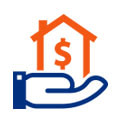
69.2% less
Cost to Rent
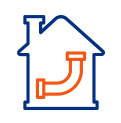
7.7% less
Utilities

17% less
Food & Groceries

1.2% less
Health Costs

47% less
Transportation

49.5% less
Auto Insurance (Annually)

20% less
Auto Sale Tax

1.5% less
Auto Registration (Annually)

29.4% less
Sales Tax

56.7% less
State Income Tax

41.6% less
Child Care
Commute Comparison
| Boise, ID | San Francisco, CA | |
Average Commute Times |
18 mins | 45 mins |
Comparison of gas prices |
$3.15 | $4.49 |
Live Traffic Comparison
Boise, ID
San Francisco, CA
Climate
Boise
San Francisco
88
 Average Summer High
Average Summer High68
55
 Average Summer Low
Average Summer Low55
40
 Average Winter High
Average Winter High58
25
 Average Winter Low
Average Winter Low47
206
 Sunny Days Per Year
Sunny Days Per Year259
13
 Rain (inches per year)
Rain (inches per year)25
18
 Snow (inches per year)
Snow (inches per year)0
Boise Area Tour
Ready to take a trip to visit Boise? Book your flight and come spend the day with us in your city of interest. We offer complimentary half and full day tours to Boise


